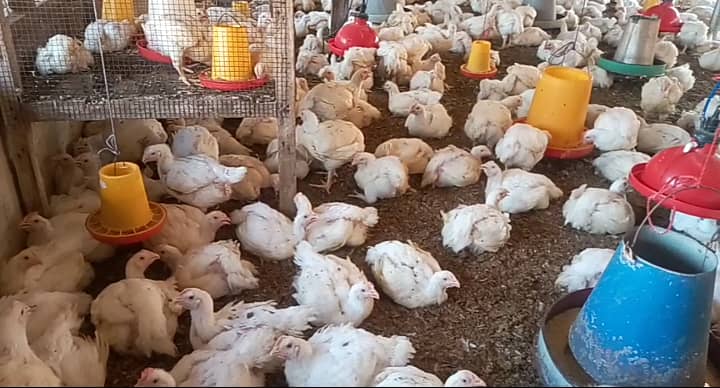“This policy is something that we in the poultry fraternity have been advocating for, for far too long. Now that we have even found ourselves in this economic hardship, agriculture is just the way to go. If the government is coming in to support, amongst others, the poultry industry, it is welcoming news and we think that now that we are having high cost of inputs, the government should make sure that areas in crops production like that of maize and soya, the are supported to be able to cultivate a lot at a cheaper price.”
George Dassah, the Northern Regional Chairman of the Poultry Farmers Association of Ghana said this when he spoke to Mark Smith on A1 Radio’s Day Break Upper East Show. His comments are in connection with the government’s deliberate decision to support the local agriculture sector to increase production and meet demand as the government vigorously pursued import substitution policies.
Mr. Dassah continued to say that the subsidies on the agricultural products used in the production of feed would translate to lower feed costs and as such, poultry farmers can stay in business.
“In poultry feed production, maize and soya are what the major ingredients are. Now, if those are supported, the government should try and see how it can subsidise, especially, when it comes to drug production. When you go to countries where these imports are coming from, the governments of thse countries subsidise the poultry sector. In those countries, the poultry sector is able to contribute immensely to their GDP.”
Credit facilities, according to Mr. Dassah, are also an essential part of supporting poultry farmers.
It would be recalled that in the 2023 Budget Statement and Financial Policy, the government stated, “to boost local productive capacity, we will among others: cut the imports of public sector institutions that rely on imports either for inputs or consumption by 50% and will work with the Ghana Audit Service and the Internal Audit Agency to ensure compliance; support the aggressive production of strategic substitutes, including the list disclosed at the President’s last address to the nation; Support large-scale agriculture and agribusinesses interventions through the Development Bank Ghana and ADB Bank; introduce policies for the protection and incubation newly formed domestic industries to allow them to make the goods produced here competitive for local consumption and also for exports. To promote exports, we will among others: expand our productive capacity in the real sector of the economy and actively encourage the consumption of locally produced rice, poultry, vegetable oil and fruit juices, ceramic tiles among others.”
When the Finance Minister, Ken Ofori Atta, presented the 2023 Budget on the floor of Parliament, he continued to say, “Mr. Speaker, as I have already indicated, Ghana’s heavy dependence on imports places tremendous pressure on the Cedi, creating an unfavourable balance of payments position. On average, Ghana’s import bill exceeds US$10 billion annually and is accounted for by a diverse range of items that include iron, steel, aluminum, sugar, rice, fish, poultry, palm oil, cement, fertilizers, pharmaceuticals, Toilet roll, toothpick, fruit juices, etc. We currently have the capacity as a country to locally produce items that account for about 45 percent of the value of our annual imports. These include rice, fish, sugar, poultry, cement, pharmaceuticals, jute bags, computers, etc. To this end, Government will target these products for import substitution by supporting the private sector, through partnerships with existing and prospective businesses to expand, rehabilitate and establish manufacturing plants targeted at producing these selected items.”
Additionally, “it has been two years since the launch of the GhanaCARES programme to mitigate the severe impact of the COVID-19 pandemic on the economy. Significant achievement has been made with the implementation of agreed activities despite the current macroeconomic challenges. Mr. Speaker, the high food prices and pressures on the local currency validates the current focus of the GhanaCARES Programme to bolster the productive and export capacity of the private sector. To this end, an Economic Enclave project with focus on providing support for the cultivation of up to 110,000 acres of land in the Greater Accra, Ashanti, Central, Savannah and Oti Regions is being pursued. Mr. Speaker, this initiative which seeks to expand our production and productivity in rice, tomato, maize, vegetables and poultry is being led and coordinated by the Millennium Development Authority (MiDA) in collaboration with other Government institutions such as the Ministry of Food and Agriculture (MoFA), Ministry of Energy, Ghana Irrigation Development Authority (GIDA), 48 Engineers Regiment of the Ghana Armed Forces (GAF) under the Ministry of Defence, the National Entrepreneurial and Innovation Programme (NEIP) and the National Service Secretariat (NSS),” the Minister said.
Source: A1radioonline.com|101.1MHz|Mark Kwasi Ahumah Smith|Ghana


